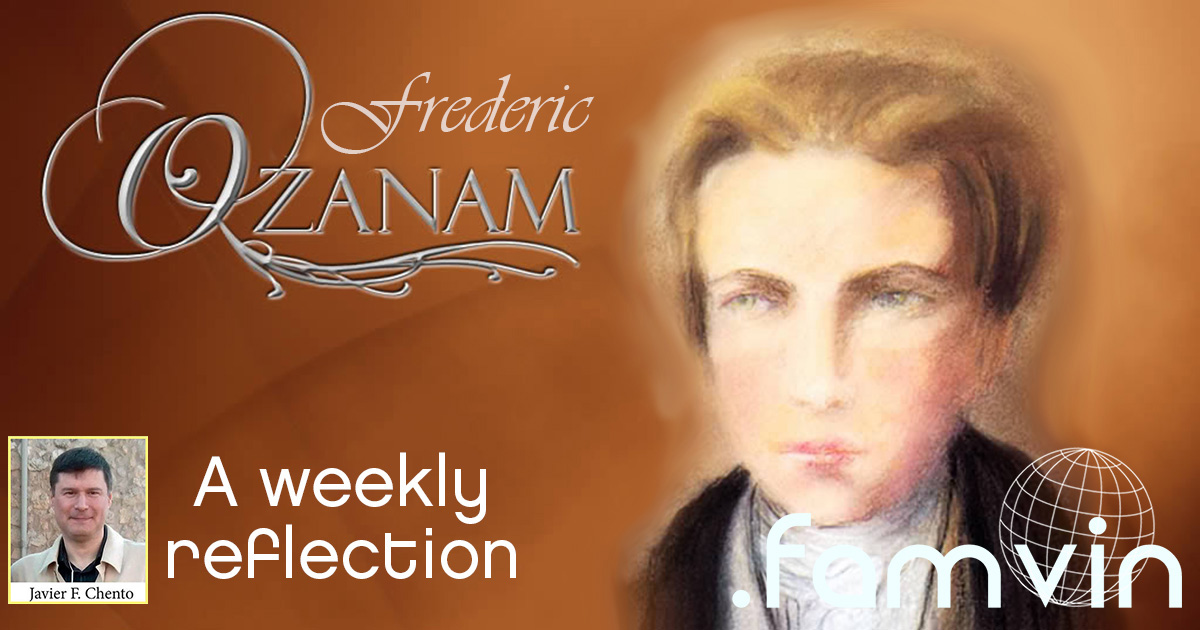We are convinced that the science of charitable reforms is not learned in the books or in the tribunes of the public assemblies, but by going up to the hovel of the poor, sitting at their bedside, suffering the cold they suffer. Then, in friendly conversation, we have the opportunity to discover the secrets of their desolate souls. When someone engages in this ministry, not for a few months, but over the years, then one can begin to know the fundamental elements of that problem called misery. One has, then, the right to propose serious measures, which, instead of frightening people, will provide them with consolation and hope.

Frederic Ozanam, address to the General Assembly of the Society of St. Vincent de Paul, on December 14, 1848.
Reflection:
- A brief historical context: when Frederic pronounced these words, the Society of St. Vincent de Paul had been operating for more than 15 years, and had greatly increased in number. It is no longer a small group of friends, but an organization that is continually growing and bringing together thousands of young people who engaged in the service of the poor. On the other hand, Frederic begins a stage of his life marked by the sickness, that would lead to his death in 1853.
- There are two very interesting aspects in this paragraph, which are worth emphasizing:
To help the poor: That concept was central to the question that was placed before Jesus: who is my neighbor (Luke 10:25-37). Helping the poor is accomplished by being with them. We should not grow accustomed to engaging in the struggle against poverty from the comfort of some office (the office should not be the only place where we engage in the struggle against poverty). For Vincentians, the poor are the sacrament of the suffering Christ. Therefore, we approach the poor in the same manner than we approach the Eucharist. We are called to enter into a personal relationship with those persons who are poor.
Only through the establishment of relationships with people who are poor will we come to know how to bring about structural change. The “wisdom of God” is embodied in those who are poor … not in treatises on the Social Doctrine. Yes, those treatises can contribute to the betterment of the situation of those who are poor, but unless we reach out to those men and women who are poor, we will have only theoretical concepts with regard to resolving the problem of poverty and injustice. Therefore, as Vincentians, we must reach out to the poor and walk with them, side by side, walk with them in solidarity. Such an approach empowers those individuals and they become the protagonists of change (which is at the very center of a systemic change approach to ministry).
- Ozanam stated: When someone engages in this ministry … one can begin to know the fundamental elements of that problem called misery. One has, then, the right to propose serious measures, which … will provide people with consolation and hope. In Spanish there is a saying: Experience is the mother of knowledge. Our personal experience, our heartfelt convictions and all that which is important to us as we journey thought life … all of that provides us with “data” that enables us to build up the Kingdom of Justice of God. One hundred seventy years ago Frederic had this insight with regard to the manner in which structures could be changed and which change would, then, benefit those who are poor. In a few sentences Frederic concretized our plan for action: our experience with the poor will strengthen us to transform unjust situations and create situations of solidarity.
Questions for dialogue:
- Re-read this text from Luke 10:25-37. How does the Word of God illuminate our action, and how is that text related to Frederic’s words that we are reflecting today?
- Let us examine how our personal and community relationships with the poor .. Are we close to them?
- How should my attitudes change in order to live out this evangelical ideal of love for the neighbor … an ideal that is proposed to us in this reading of the Gospel of Luke?
Javier F. Chento
![]() @javierchento
@javierchento
![]() JavierChento
JavierChento








0 Comments